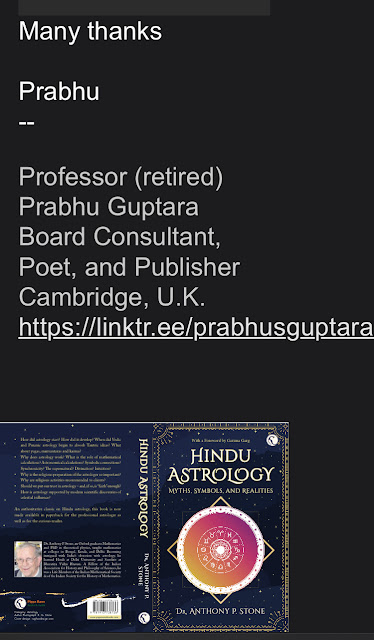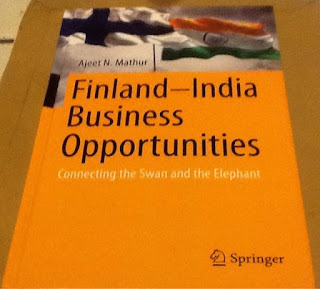Over last weekend I learnt of the passing of one of my dearest friends from our college days, Rathikant Basu.
I will later share a link with you about his professional achievements, revolutionising Indian tv and entertainment in India, written by a former colleague, but first I must tell you about our personal association from our college days.
Sujit Bhattacharaya, son of a former Chairman of the Reserve Bank of India, studied in Cathedral and John Connon School, Bombay, with me and we both joined St. Stephen’s College in the summer of 1960.
As fate eould have it, we were both in the only Mukarji block of that time.
 |
| Photo of Collrge Mukarji Block |
ujit, being a Bengali, quickly caught up with two other Bengalis, Dipankar Basu and Rathikant Basu, both one year senior to us.
Sujit is a quiet person with an absolutely great sense of wit and humour.
We both made some friends independently and they all became our common friends.
Sujit had earlier studied in Delhi at St. Columbus School, so he knew Rajagopalan Narayanan, who also stayed in Mukarji block, so he joined our crowd. As Rajagopalan was a Malayali, he found me to be a good friend and sort of hero worshipped me.
Rathikant was of the same mould as Sujit with a great analytical mind, a sarcastic tongue used very carefully and cautiously and was real fun to be with. Commonly known ads Stephanian humour!
Our other friends were my dearest, late Ajay Verma, Ambassador HE Niranjan Desai, Arun Aggarwal (Tich), Chandu Rijhwani, Devendra Pratap, Ravi Batra, Badrinath, Deepak Chopra, Hirak Ghosh and a few others.
Although Rathikant was not a resident of Mukarji block, as were the others, he literally lived there, going to the cafe or to the dining hall together and hanging out in the JCR.
We had a great time in college. We used to jump gates and go to the movies together. We shared 7 people in a taxi coming back.
None of us were the womanising type so we did not hang out in the Wenger cafe but preferred the India Coffee House and the Kamala Nagar restaurants for our out of college jaunts.
The crowd was a cross-section of persons from all parts of India, highly secular, and from a variety of courses as Physics, Maths, Chemistry, Economics and English and covered the years from 1st to final. All were studious and did spend time clearing our grades.
We loved hanging out together and we had varied sports interests from basketball, hockey, cricket, table tennis, chess, bridge, carroms, and midnight feasts!
Those were golden days and this crowd, along with my cousin Padma Shri Mammen Mathew (Rajen) and his crowd in the first year when I was in my second, stormed me to victory to be the only person to be the President of the JCR in the second year, a feat not repeated again!
Rathikant was a caring individual and immensely knowledgeable about all things in life.
We discussed every subject that was the topic of the day and I was “educated” by him in the college cafe over coffee, scrambled eggs and mince!
Our paths diverged but came together in the early seventies on my return to India. I used to frequent Baroda as I was doing a consulting job for IPCL.
On one occasion I had an invitation to go to Ahmedabad and was told that Rathikant was the Muncipal Commissioner there. I communicated with him and he responded immediately. He had me picked up on arrival, took me home where his gracious and lovely wife cooked and served a truly wonderful Bengali meal, and he made sure I had everything to make my visit comfortable.
Since then we communicated regularly and he went through many ups and downs, but he always kept smiling. Knowing my family history in the media world he kept bouncing ideas off me. It was a truly interesting time as he went stage by stage to establish a truly strong independent media in India. We owe Rathikant an enormous debt for his contribution to freedom of expression in India!
He lost his better half and was in great depression after that but he found away around that by communicating with his friends like Ajay in Sweden and me in Finland. He must have had others but that is not known to me.
He was in Calcutta and then decided to move to Ahmedabad.
In 2008 I addressed an email to Nirmal Jhalla , one year junior to me, about organising a reunion and and Rathikant was thge first to reply. I attach below my email to Nirmal with cc to others and Rathikant's immediate reply to that.
From: Jacob MatthanCc: Sarwar Lateef ; Peter (Tubby) Philip ; 57er Ashok (Tony) Jaitly ; Davendra Pratap ; Mammen (Rajen) Mathew ; RamuKatakam ; Aftab Seth ; Aftab Baveja ; Ramani Subramanian ; Badrinath Ramanathan ; Dileep RaoSent: Sunday, October 12, 2008 10:32 AMSubject: Great hearing from youHi Nirmal,
Great hearing from you. Noted your new email address.
Rathikant and I got together through LinkedIn. Ajay came to Oulu after he retired. He is back in Lund, Sweden. Niranjan and I have chatted when he was in London. He retired but is working for an organisation in Delhi. Sujit is back online with me through my school network.
I am thinking of planning a get together in Delhi next December around the time of Founders Day, December 6 2009.
I am communicating this email to Davendra, Mammen, Katakam, Aftabs (Seth and Baveja), Tony, Tubby, Sarvar, Deepak, Ramani, Badri, Dileep, to start with.
If all are interested I can start a Google 2009 Reunion Group and we can plan a good bash in Delhi. I have several more from our years on my list. (Ranjit Jacob, George Verghese, Abe Tharakan, Kamlesh Sharma, Karti Sandilya, Ravi Katari, Siddarth Singh, Arun Shourie (if he will codescend to accepting hiis alma mater?), Swami, Mani Shanker, Jose Vellapally, etc.)
The Delhi-ites can coordinate with the college (Tony, Niranjan, Siddarth, etc.).
If each of you can add 10 to the list, we could have a great get-together and relive the "Sixties". Maybe a mock cricket match as most of us may not be able to waddle to the centre!
I have done this with my school class group of 1959 and we are having our reunion in November 2009 in Mumbai with hopefully over 160 participants (as many wives will also be joining in). Wives of now absent friends are also joining us there.
So much to talk about and so little time ahead! Ajay and I talked non-stop for the two days he spent here in Oulu.
Want to have this as a special tribute to our Kooler Talk Founders - who have inspired me to run the Web Version for over 12 years.
Would love to see you (and all others) there. Calcutta is not on our travel itinerary - Mumbai, Kottayam, Bangalore. Chennai, Hyderabad and finally Delhi.
Regards
Jacob
--
Jacob Matthan
Oulu, Finland
Blogs:
He wanted to open a Tea House in Helsinki but I advised against it as Finland is a land of coffee drinkers.
We communicated regularly and discussed matters of interest to both of us - politics and entertainment being the primary topics. He was a regular reader pf the Kooler Talk Blog run by me.
I found his knowledge immense and I learnt a lot about the Indian Political scene from his vast experience.
He never shared his problems with me! He only shared his happiness and always told me that I had helped him through his difficult emotional times with my positive attitude.
He promised to make a trip to Finland, but we lost Ajay and that was a sad blow to both of us.
As soon as I learnt of the passing of Rathikant I sent a message to Sujit who shared with me his deep personal grief in losing Rathikant.
Sujit also shared a link written by a former colleague of Rathikant about the his professional life.
When I did a Google search about Rathikant I found numerous links of great tribute to this outstanding individual who completely revolutionised the India media and entertainment world by his far sightedness.
Rathikant was more than a friend. A fellow alumni, he always stood for what was right according to the principles we had imbibed from our stay in the college.
May our dear friend rest in peace.

























